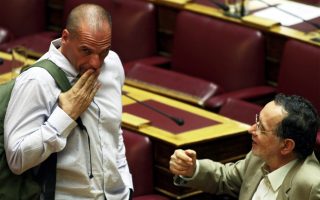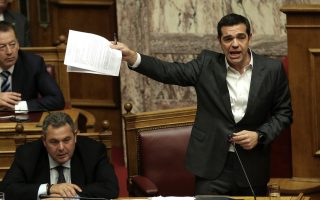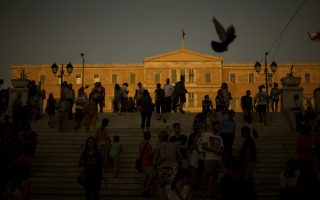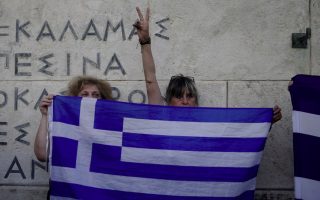SYRIZA’s paradoxes

One of the first paradoxes to emerge from the January 25 elections was the makeup of the government. SYRIZA had 149 deputies but this was not enough for a majority. The decision to work with Independent Greeks (ANEL), a xenophobic and conspiratorial party, was portrayed as inevitable, a decision purportedly mandated by the balance of power and the need to avoid another election. Perhaps these arguments sounded convincing to high-ranking SYRIZA officials but they could barely disguise the disappointment of the party’s grassroots (the 4 percent that had supported it in its early years).
The hopes of these people were quickly dashed as they saw the country’s first left-wing government relying on the votes and whims of a reactionary party whose sensibilities were made evident during a debate on the citizenship bill. ANEL is a vigorous champion of the Greek-by-blood-only dogma – a dogma the left has always been allergic to.
This dogma is also espoused by Pavlos Haikalis, the ANEL MP who was over the weekend promoted to alternate minister for social security. It is for such views that Haikalis ought to be held accountable and not for the fact that he happens to be a former actor. The assumption that he was offered the post in exchange for his consent in the crucial parliamentary votes of the coming days is a sign that SYRIZA has become uncomfortably dependent on ANEL.
A second paradox was the decision to back Prokopis Pavlopoulos, a former New Democracy minister, for president of the republic. It was made in a bid to penetrate an already-fragmented conservative party.
Still, the shockwaves caused by the nomination, and eventual election, of Pavlopoulos were insignificant compared to the repercussions of paradox number three: the official interpretation of the no vote at the Greek bailout referendum. The highly unexpected 61.3 percent appears to have caused more fear than confidence. This interpretation is based on public opinion polls which have found that the vast majority of people are unequivocally pro-Europe. The government translated this firm, pro-Europe message as acceptance of a very tough deal. Prime Minister Alexis Tsipras called on his MPs to back the deal, while being critical of it at the same time himself. His call naturally met with resistance from about 40 SYRIZA lawmakers.
All this has left us with a fourth paradox, which is, in fact, a double paradox. One is that the anti-bailout coalition still stands thanks to votes from Greek opposition parties that have in the past signed and implemented previous bailout agreements. Second, the deputies that voted against the deal insist that their support for the government remains intact. Even Zeno would be at a loss with such a paradox.





